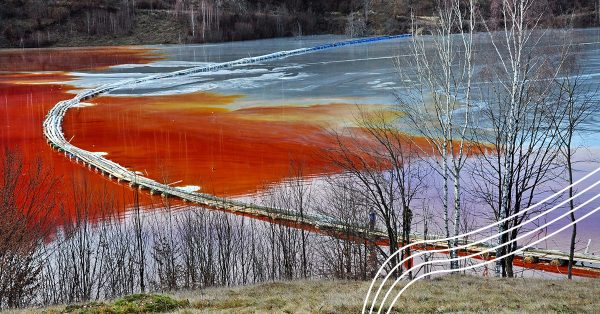Natural fertilisers (man-made), possessing vital sources of plant nutrients like nitrogen, have long been at work in regions where commercial agriculture thrives. However, the continued and excessive use of manure and synthetic fertiliser containing nitrates (a soluble form of nitrogen) may lead to surface run-off that has consequences on the environment and human health.
Small towns like Griswold, Iowa, as described in an article by The Guardian, suffer acutely from contaminated water supplies. Such towns lack the financial and operational means to properly deal with nitrate pollution. Even before the consideration of a nitrate removal facility, which “would wipe out a third of Griswold’s US$3 million annual budget,â€? current farming practices are simply not positioned to deal with the problem on a structural level.
Short-term practices such as planting cover crops to prevent nitrate run-off have only been implemented across 2% of Iowa’s farmland, in spite of state regulations specifically aimed at curbing fertiliser run-off. At the end of the day, the sheer volume of cropland (80% of which covers the state) dedicated to growing products like corn and soya bean have already done irreparable damage to water supplies. Indeed, “despite Griswold’s efforts, water quality has still not improved. Nitrate levels spiked in 2017 and 2018. At the most recent inspection in February, one well showed an increase of nitrates to 10.5 mg/l.â€? For reference, some studies carried out by the National Cancer Institute indicate an average level of 5 mg/l of nitrates “may increase the risk of certain cancers.â€? In addition to the human risks, the damage to the environment is catastrophic.
Eutrophication, a process in which “high levels of nitrogen and phosphorus…can lead to hypoxia (‘dead zones’), causing fish kills and a decrease in aquatic life,â€? is a constant concern in regions where fertiliser run-off is frequent. Unfortunately for towns like Griswold, fertiliser usage in the surrounding farms is critical to its economic output. Excessive fertiliser usage, and the damage it causes, shows no sign of abating, and solutions, like the one being developed by Clean Earth Technologies, are needed. A canola oil polysulfide—made from waste cooking oil and elemental sulphur—might be the answer.
This polysulfide, combined with plant nutrients (nitrogen, phosphorus, potassium), can match the specific needs of different plants. It slows the release of fertiliser, and by doing so, helps reduce the loss of valuable nutrients in tailwater, and greatly lessens the environmental impact from run-off.
*Source: The Guardian



